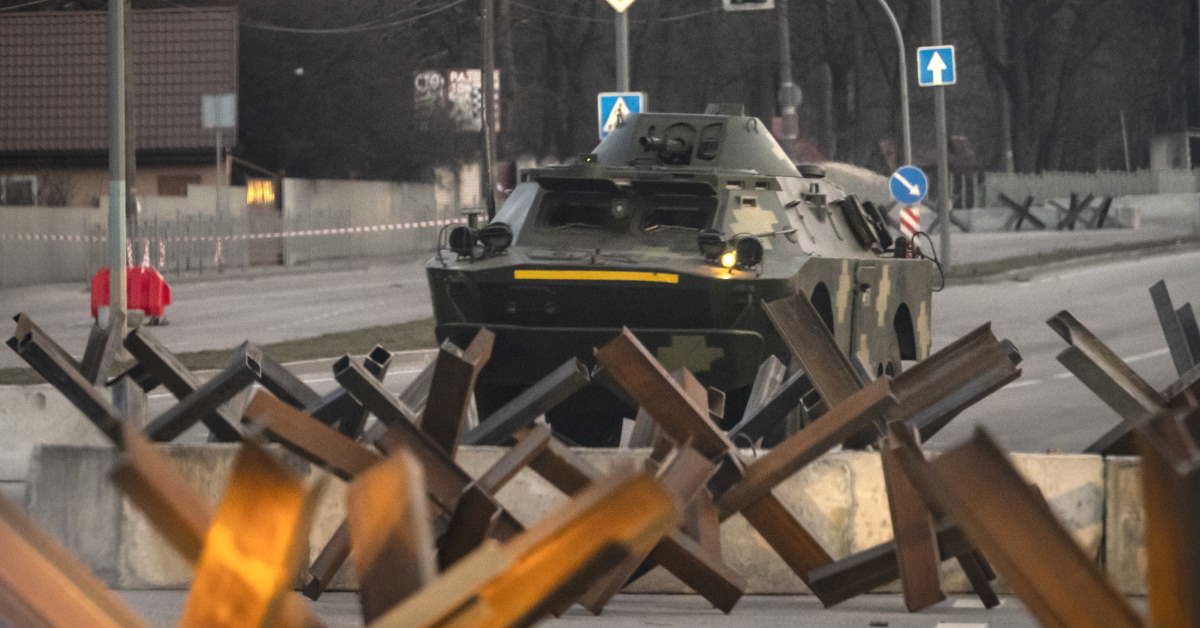The Ukraine war has major economic consequences for energy, food, inflation and poverty, according to the European Bank for Reconstruction and Development (EBRD).
The EBRD's chief economist, Beata Javorcik, spoke to AFP about the fallout from Russia's invasion of Ukraine, from where more than three million refugees have fled so far.
Global lenders are giving billions for Ukraine, including a two-billion-euro (US$2.2 billion) "resilience package" from the London-based EBRD, but there is currently no end in sight to the conflict.
The crisis has sent commodity prices rocketing on supply fears, fuelling inflation that is already at multi-decade highs.
What Are The Costs To Rebuild Ukraine?
Beata Javorcik: The costs of this war will depend on how long fighting will last. Big parts of the country are functioning – infrastructure is there, the banking system is functioning, businesses are still open. But it's very hard to quantify.
The (rebuild) figure of US$100 billion comes from the Ukrainian government ... and is the cost of infrastructure and buildings that have been destroyed. It's equivalent to about two thirds of gross domestic product (GDP).
According to the Ukrainian government, half of the firms have closed down and other firms are working at reduced capacity.
That shows that the economic cost is going to be significant.
What Is The Outlook For The Refugee Crisis?
Beata Javorcik: It is a tragic situation that so many people had to have their lives and livelihoods uprooted and had to move somewhere else to avoid the conflict.
But what historical experience tells us is that some of the refugees stay in the host countries and they serve as a bridge, as people who set up business links with their home country and in this way facilitate flows of investment and trade.
Historical experience tells us that, if the conflict continues, the number of refugees may reach six million.
The scale of it is huge and it is unprecedented.
What About Spiking Commodity Markets?
Beata Javorcik: Even if the war stopped today, the consequences of this conflict would be felt for months to come, and that would work through commodity prices.
The poor are going to be hit much harder by higher energy prices and by higher food prices.
That has implications for poverty and for political stability.
Russia and Ukraine are responsible for 30 percent of wheat exports globally. Ukrainian farmers have not sold last year's crop yet. Shipping in the Black Sea is hindered – and Ukrainian farmers are not sowing new crops.
Russia and Belarus are very important exporters of ammonia and potash – inputs into fertilisers.
There is an impact on renewable energy because nickel, copper, platinum, and palladium are inputs into the industry.
If you think about gas being at record levels in Europe and oil being high globally ... All of these things lead to inflation.
What Is The Impact Of Sanctions On Russia?
Beata Javorcik: There is the short-term economic cost which will result from foregone international trade and lower confidence.
We could talk about the consumer loss of confidence, the rouble losing value, and so on, but perhaps what is more interesting is the longer-term cost.
If, even after the conflict ends, Russia is perceived as a risky destination for investment, or if some nationalisations happen – as we have heard in statements from (President) Vladimir Putin – this is going to damage the reputation of Russia.
If sanctions on exports of high technology products persists, then you lose access to knowledge embodied in capital goods. And then there may also be loss of flow of scientists, students in both directions.
Will The World Economy Take A Hit?
Beata Javorcik: The conflict happened at a time when there was already a slowdown in the global economy, so higher energy prices are going to put more brakes on growth.
And higher inflation will force central banks to react with increased interest rates, which is also going to be bad for growth.
So, this conflict will have an adverse effect on the global economy – no question about that.
